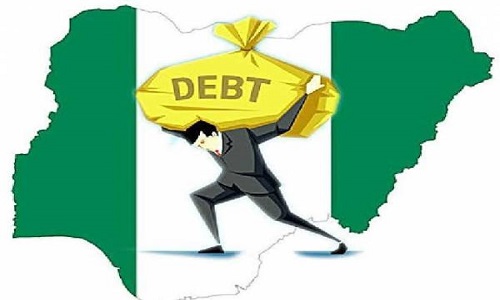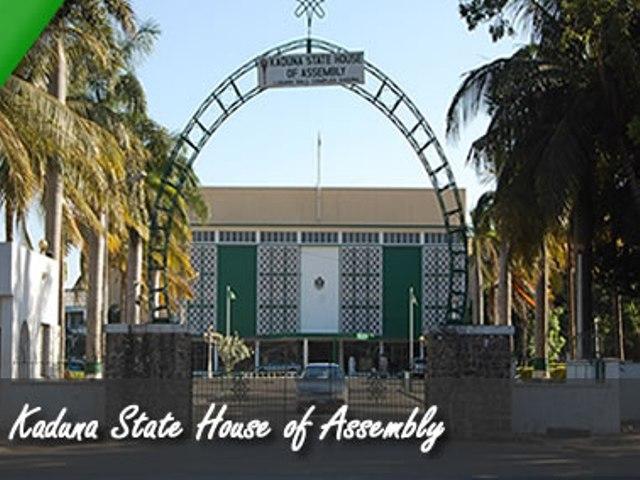Nigeria is at a very high risk of debt distress, a report released by an Abuja-based policy think tank, Agora Policy, has said.
The report noted that “despite official statements about the sustainability of Nigeria’s growing debts, the public debt is not only understated but has also become a major drag on public finance”.
According to the report, “the proportion of expenditure going to debt service is consistently expanding, and debt service has grown to become the highest component of expenditure, thus crowding out other expenditures critical to economic growth and human development”. The report interrogated the suitability of using the Debt Sustainability Framework (DSF) for low income countries for Nigeria.
“For a country like Nigeria, where domestic debt is higher than external debt, negating domestic debt service in any analysis will not give a true picture…
“Already, using only external debt service as a ratio of revenue has the country just under the strongest threshold. If the analysis is conducted for total debt service (including interest on Ways and Means) as a ratio of revenue, the figure of 90.92 per cent is obtained, indicating very high risk of debt distress,” it said.
The report regretted that “the advances by the Central Bank of Nigeria (CBN) to the Federal Government, called Ways and Means, are not captured in the official figures for domestic debt, thus understating Federal Government’s domestic debt by about half.
The report said: “Federal Government’s domestic debt as at December 2021 was N19.2 trillion. But Federal Government’s domestic debt would have been N36.6 trillion if the N17.4 trillion for Ways and Means at that time had been included, meaning the domestic debt as at December 2021 was understated by 47.5 per cent.
It also revealed that in eight years, Ways and Means ballooned by more than 7,000 per cent, from N265.70 billion in January 2014 to N18.89 trillion in March 2022, and in contravention of the CBN Act 2007.
Nigeria, the report added, needs swift and audacious reforms to stop the country’s rapid economic decline.
“Nigeria’s economy is in desperate need of quick and bold actions to get out of the rut of low and fragile growth, lean and narrow revenue and export base,” it warned.
Other economic woes that the country needs to exit, the report said, include “soaring debts and deficits, limited trade and investment, suboptimal government spending, and growing inflation, unemployment and poverty”.
Founder and Executive Director of Agora Policy, Waziri Adio, called for deft economic management as well as the strong political will, effective communication and trust-building before embarking on the economic reforms.
Specifically, he called for the removal of “the progressively ruinous petrol subsidies, increasing tax revenue, curbing the growing and suffocating appetite for debts, ending restrictive trade practices, and adopting a more realistic and more transparent exchange rate regime”.
Adio added: “Everything revolves around the economy and there is no better time than the electioneering period to do a health check on the economy and come up with ideas and prescriptions for better economic outcomes.
“Nigeria has not only underperformed its peers but also regressed on most socio-economic indicators between 2011 and 2021.”
Finances of the Federal Government, according to the report, “have been defined in the last decade by a stark mismatch between expenditure and revenue on one hand and by an explosion of debts and deficits on the other”.
It noted that Federal Government’s expenditure rose by 179 per cent, from N4.48 trillion in 2011 to N12.51 trillion in 2021; Federal Government’s actual revenue increased by only 81 per cent, from N2.57 trillion in 2011 to N4.63 trillion in 2021.
To bridge the gap between expenditure and revenue, the report said the government has had to borrow.
“With growing debts, translating to a 436 per cent rise in Federal Government’s debt from N6.17 trillion in 2011 to N33.11 trillion in 2021. Significantly, domestic debt rose by 242 per cent, from N5.17 trillion in 2011 to N19.2 trillion in 2021, while external debt increased by 2,435 per cent from N546 billion in 2011 to N13.86 trillion in 2021.
“However, the increase in expenditure and debts has not translated to improvement in human welfare. For example, the rate of unemployment rose from 5.9 per cent in 2011 to 33.3 per cent in 2020, while youth unemployment soared from 8.04 per cent in 2011 to 42.49 per cent in 2020. The number of Nigerians living below the poverty line is projected to increase from 82.9 million in 2019 to 95 million by the end of 2022,” the report said.










